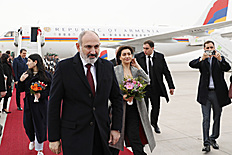 1670x1113px - 359 Kb
1670x1113px - 359 Kb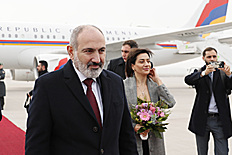 1670x1113px - 303 Kb
1670x1113px - 303 Kb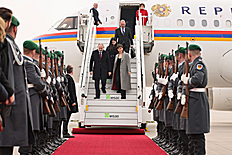 1670x1113px - 563 Kb
1670x1113px - 563 Kb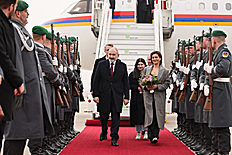 1670x1113px - 574 Kb
1670x1113px - 574 Kb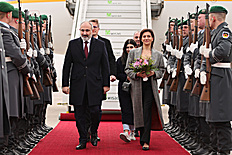 1670x1113px - 617 Kb
1670x1113px - 617 Kb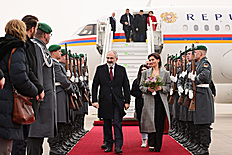 1670x1113px - 548 Kb
1670x1113px - 548 Kb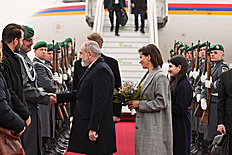 1670x1113px - 563 Kb
1670x1113px - 563 Kb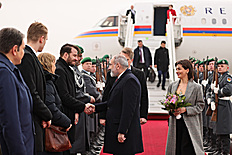 1670x1113px - 483 Kb
1670x1113px - 483 Kb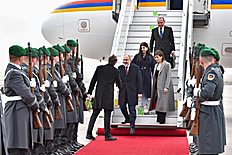 1670x1113px - 489 Kb
1670x1113px - 489 Kb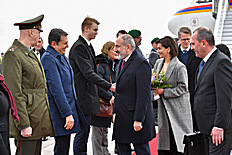 1670x1113px - 432 Kb
1670x1113px - 432 Kb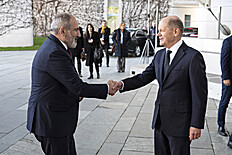 3500x2329px - 586 Kb
3500x2329px - 586 Kb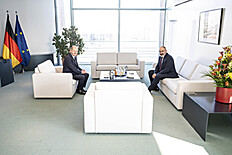 3500x2329px - 950 Kb
3500x2329px - 950 Kb 3500x3500px - 1 Mb
3500x3500px - 1 Mb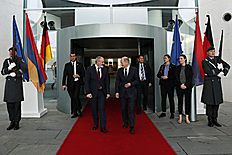 1670x1113px - 497 Kb
1670x1113px - 497 Kb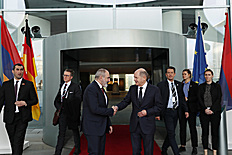 1670x1113px - 405 Kb
1670x1113px - 405 Kb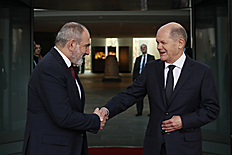 1670x1113px - 283 Kb
1670x1113px - 283 Kb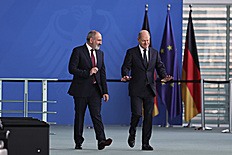 1670x1113px - 399 Kb
1670x1113px - 399 Kb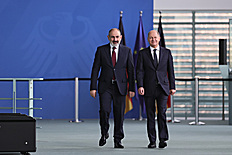 1670x1113px - 388 Kb
1670x1113px - 388 Kb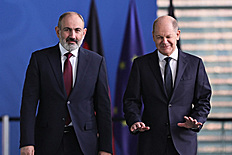 1113x1670px - 386 Kb
1113x1670px - 386 Kb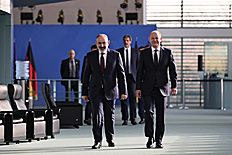 1670x1113px - 435 Kb
1670x1113px - 435 Kb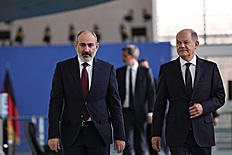 1670x1113px - 357 Kb
1670x1113px - 357 Kb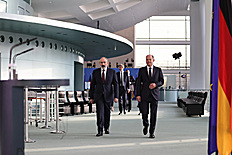 1670x1113px - 421 Kb
1670x1113px - 421 Kb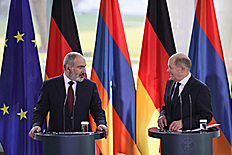 1670x1113px - 433 Kb
1670x1113px - 433 Kb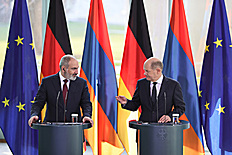 1670x1113px - 446 Kb
1670x1113px - 446 Kb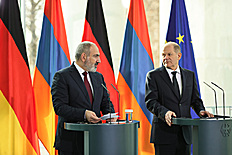 1670x1113px - 405 Kb
1670x1113px - 405 Kb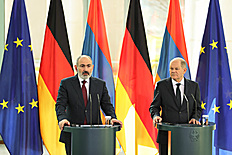 1670x1113px - 434 Kb
1670x1113px - 434 Kb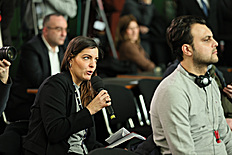 1670x1113px - 404 Kb
1670x1113px - 404 Kb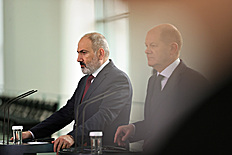 1670x1113px - 331 Kb
1670x1113px - 331 Kb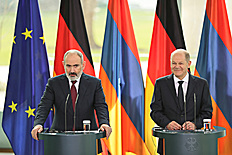 1670x1113px - 480 Kb
1670x1113px - 480 Kb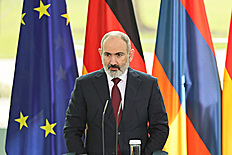 1670x1113px - 449 Kb
1670x1113px - 449 Kb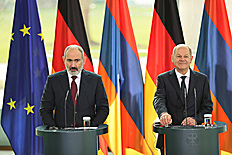 1670x1113px - 469 Kb
1670x1113px - 469 Kb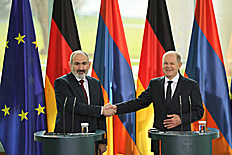 1670x1113px - 446 Kb
1670x1113px - 446 Kb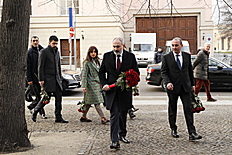 1670x1113px - 798 Kb
1670x1113px - 798 Kb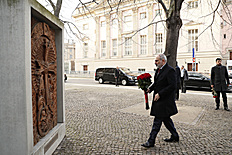 1670x1113px - 877 Kb
1670x1113px - 877 Kb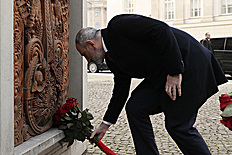 1113x1670px - 745 Kb
1113x1670px - 745 Kb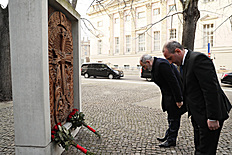 1670x1113px - 797 Kb
1670x1113px - 797 Kb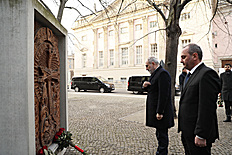 1670x1113px - 738 Kb
1670x1113px - 738 Kb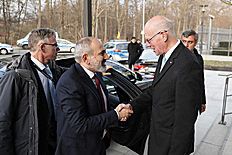 1670x1113px - 526 Kb
1670x1113px - 526 Kb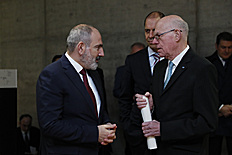 1670x1113px - 289 Kb
1670x1113px - 289 Kb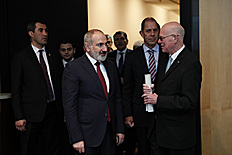 1670x1113px - 312 Kb
1670x1113px - 312 Kb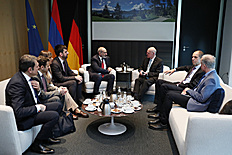 1670x1113px - 641 Kb
1670x1113px - 641 Kb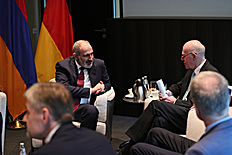 1670x1113px - 417 Kb
1670x1113px - 417 Kb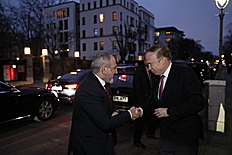 1670x1113px - 397 Kb
1670x1113px - 397 Kb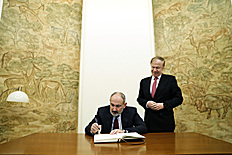 1670x1113px - 386 Kb
1670x1113px - 386 Kb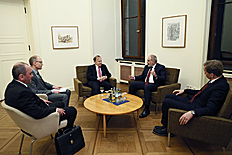 1670x1113px - 473 Kb
1670x1113px - 473 Kb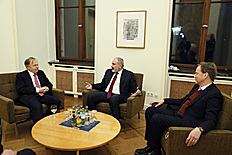 1670x1113px - 581 Kb
1670x1113px - 581 Kb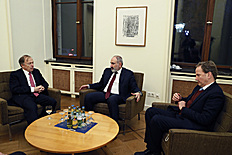 1670x1113px - 528 Kb
1670x1113px - 528 Kb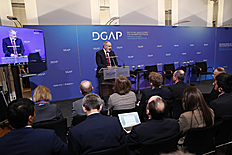 1670x1113px - 439 Kb
1670x1113px - 439 Kb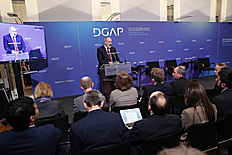 1670x1113px - 451 Kb
1670x1113px - 451 Kb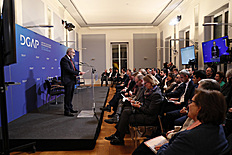 1670x1113px - 511 Kb
1670x1113px - 511 Kb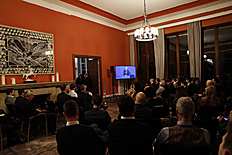 1670x1113px - 478 Kb
1670x1113px - 478 Kb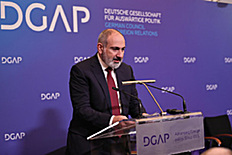 320x202px - 44 Kb
320x202px - 44 Kb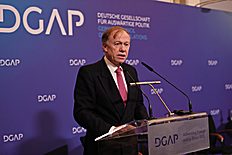 1670x1113px - 276 Kb
1670x1113px - 276 Kb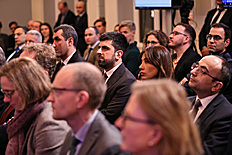 1670x1113px - 387 Kb
1670x1113px - 387 Kb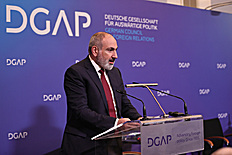 1670x1113px - 423 Kb
1670x1113px - 423 Kb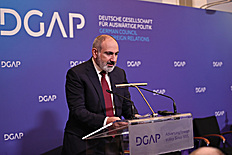 1670x1113px - 420 Kb
1670x1113px - 420 Kb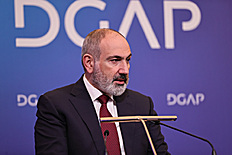 1670x1113px - 417 Kb
1670x1113px - 417 Kb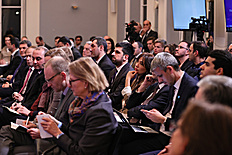 1670x1113px - 501 Kb
1670x1113px - 501 Kb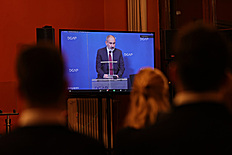 1670x1113px - 248 Kb
1670x1113px - 248 Kb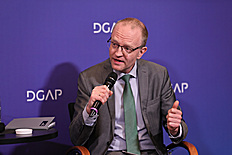 1670x1113px - 417 Kb
1670x1113px - 417 Kb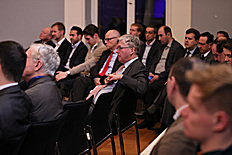 1670x1113px - 399 Kb
1670x1113px - 399 Kb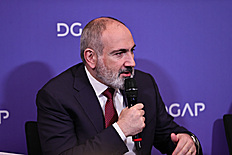 1670x1113px - 426 Kb
1670x1113px - 426 Kb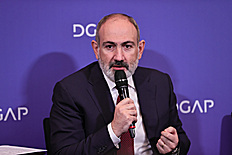 1670x1113px - 420 Kb
1670x1113px - 420 Kb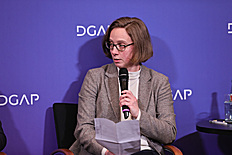 1670x1113px - 515 Kb
1670x1113px - 515 Kb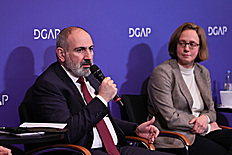 1670x1113px - 484 Kb
1670x1113px - 484 Kb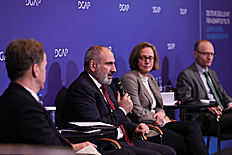 1670x1113px - 329 Kb
1670x1113px - 329 Kb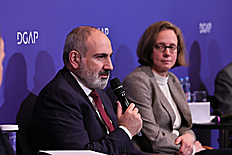 1670x1113px - 493 Kb
1670x1113px - 493 Kb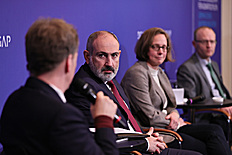 1670x1113px - 393 Kb
1670x1113px - 393 Kb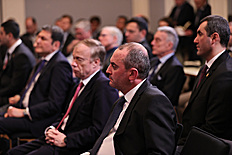 1670x1113px - 407 Kb
1670x1113px - 407 Kb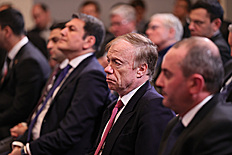 1670x1113px - 421 Kb
1670x1113px - 421 Kb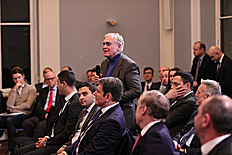 1670x1113px - 466 Kb
1670x1113px - 466 Kb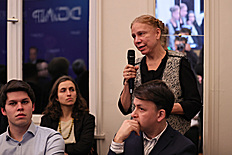 1670x1113px - 460 Kb
1670x1113px - 460 Kb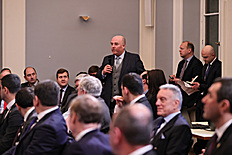 1670x1113px - 311 Kb
1670x1113px - 311 Kb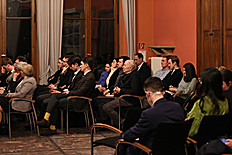 1670x1113px - 510 Kb
1670x1113px - 510 Kb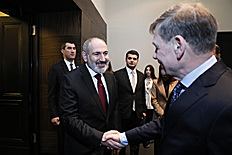 1670x1113px - 340 Kb
1670x1113px - 340 Kb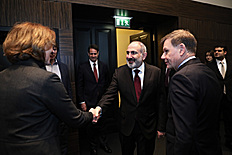 1670x1113px - 359 Kb
1670x1113px - 359 Kb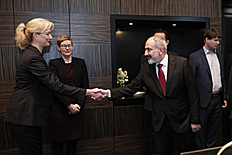 1670x1113px - 376 Kb
1670x1113px - 376 Kb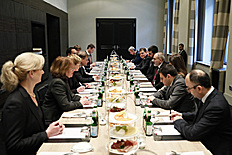 1670x1113px - 512 Kb
1670x1113px - 512 Kb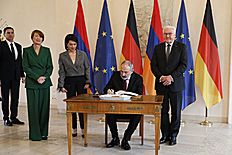 1670x1113px - 537 Kb
1670x1113px - 537 Kb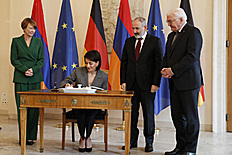 1670x1113px - 498 Kb
1670x1113px - 498 Kb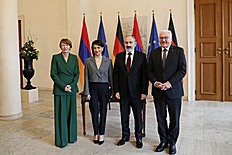 1670x1113px - 548 Kb
1670x1113px - 548 Kb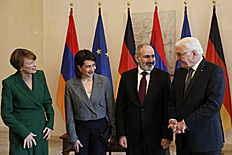 1670x1113px - 395 Kb
1670x1113px - 395 Kb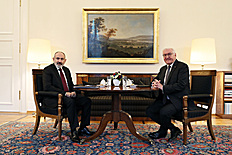 1670x1113px - 652 Kb
1670x1113px - 652 Kb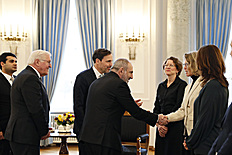 1670x1113px - 449 Kb
1670x1113px - 449 Kb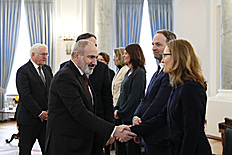 1670x1113px - 403 Kb
1670x1113px - 403 Kb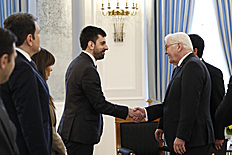 1670x1113px - 374 Kb
1670x1113px - 374 Kb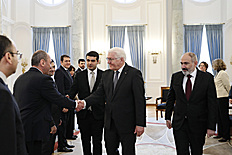 1670x1113px - 386 Kb
1670x1113px - 386 Kb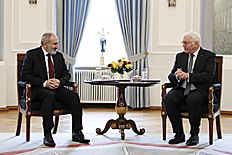 1670x1113px - 477 Kb
1670x1113px - 477 Kb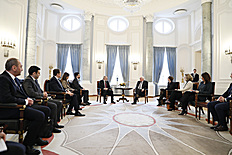 1670x1113px - 585 Kb
1670x1113px - 585 Kb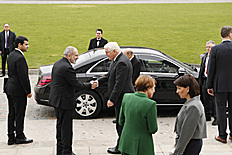 1670x1113px - 476 Kb
1670x1113px - 476 Kb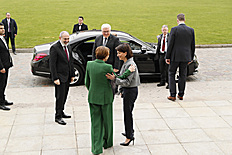 1670x1113px - 563 Kb
1670x1113px - 563 Kb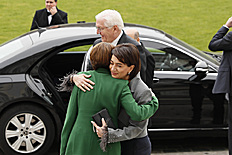 1670x1113px - 382 Kb
1670x1113px - 382 Kb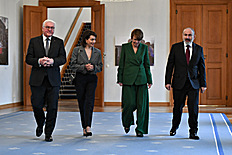 1670x1113px - 332 Kb
1670x1113px - 332 Kb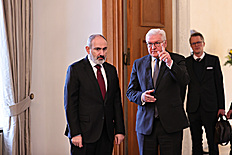 1670x1113px - 424 Kb
1670x1113px - 424 Kb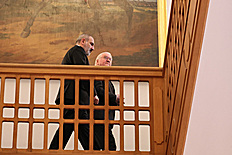 1113x1670px - 481 Kb
1113x1670px - 481 Kb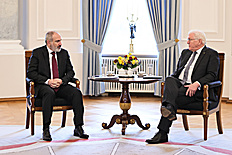 1670x1113px - 547 Kb
1670x1113px - 547 Kb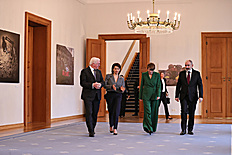 1670x1113px - 498 Kb
1670x1113px - 498 Kb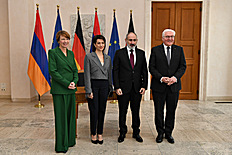 1670x1113px - 415 Kb
1670x1113px - 415 Kb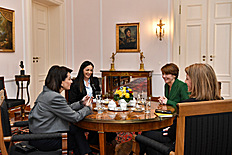 1670x1113px - 382 Kb
1670x1113px - 382 Kb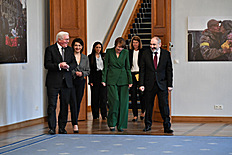 1670x1113px - 337 Kb
1670x1113px - 337 Kb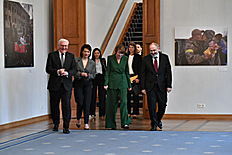 1670x1113px - 338 Kb
1670x1113px - 338 Kb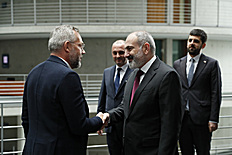 1670x1113px - 347 Kb
1670x1113px - 347 Kb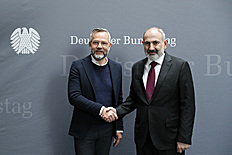 1670x1113px - 360 Kb
1670x1113px - 360 Kb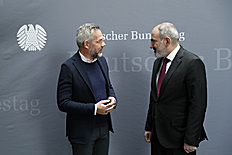 1670x1113px - 375 Kb
1670x1113px - 375 Kb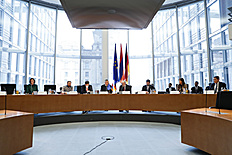 1670x1113px - 594 Kb
1670x1113px - 594 Kb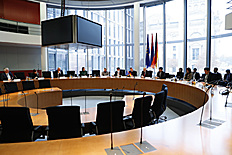 1670x1113px - 534 Kb
1670x1113px - 534 Kb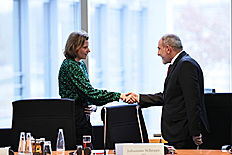 1670x1113px - 355 Kb
1670x1113px - 355 Kb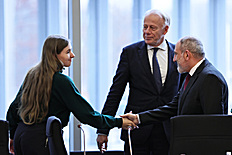 1670x1113px - 352 Kb
1670x1113px - 352 Kb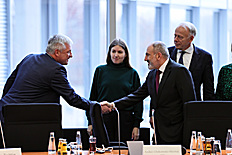 1670x1113px - 388 Kb
1670x1113px - 388 Kb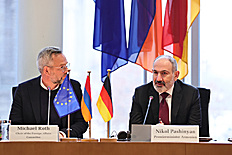 1670x1113px - 421 Kb
1670x1113px - 421 Kb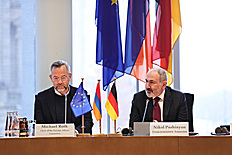 1670x1113px - 383 Kb
1670x1113px - 383 Kb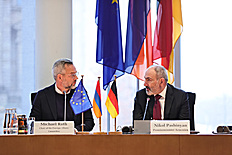 1670x1113px - 386 Kb
1670x1113px - 386 Kb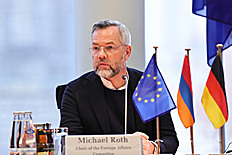 1670x1113px - 383 Kb
1670x1113px - 383 Kb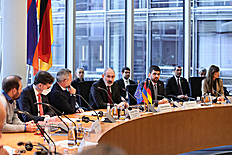 1670x1113px - 581 Kb
1670x1113px - 581 Kb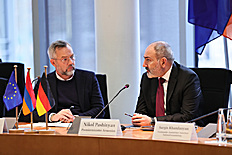 1670x1113px - 423 Kb
1670x1113px - 423 Kb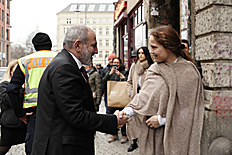 1670x1113px - 457 Kb
1670x1113px - 457 Kb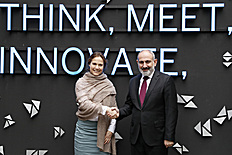 1670x1113px - 472 Kb
1670x1113px - 472 Kb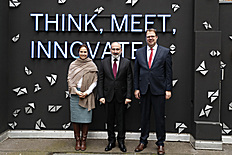 1670x1113px - 521 Kb
1670x1113px - 521 Kb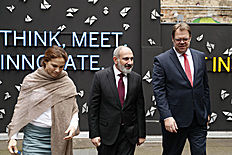 1670x1113px - 457 Kb
1670x1113px - 457 Kb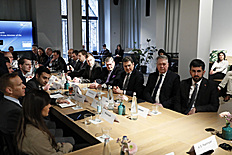 1670x1113px - 541 Kb
1670x1113px - 541 Kb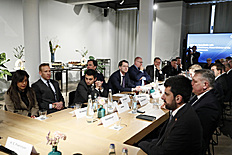 1670x1113px - 475 Kb
1670x1113px - 475 Kb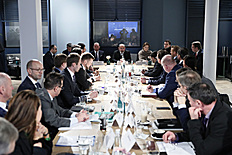 1670x1113px - 496 Kb
1670x1113px - 496 Kb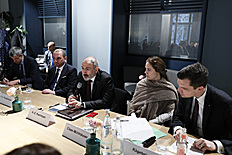 1670x1113px - 480 Kb
1670x1113px - 480 Kb 1670x1113px - 493 Kb
1670x1113px - 493 Kb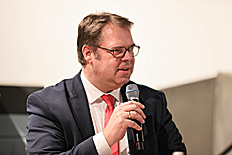 1670x1113px - 374 Kb
1670x1113px - 374 Kb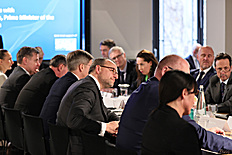 1670x1113px - 402 Kb
1670x1113px - 402 Kb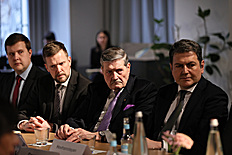 1670x1113px - 410 Kb
1670x1113px - 410 Kb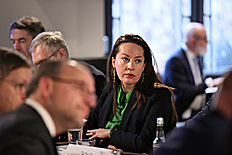 1670x1113px - 402 Kb
1670x1113px - 402 Kb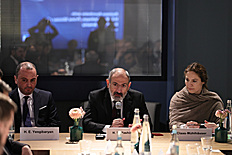 1670x1113px - 440 Kb
1670x1113px - 440 Kb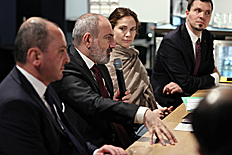 1670x1113px - 418 Kb
1670x1113px - 418 Kb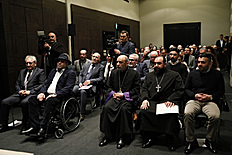 1670x1113px - 518 Kb
1670x1113px - 518 Kb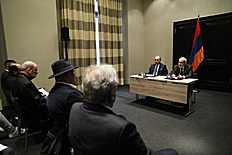 1670x1113px - 495 Kb
1670x1113px - 495 Kb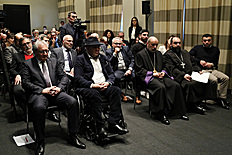 1670x1113px - 622 Kb
1670x1113px - 622 Kb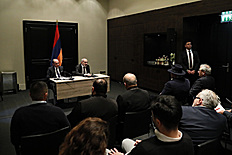 1670x1113px - 372 Kb
1670x1113px - 372 Kb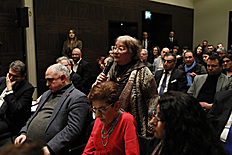 1670x1113px - 492 Kb
1670x1113px - 492 Kb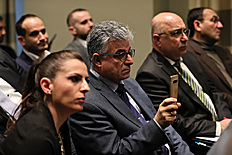 1670x1113px - 622 Kb
1670x1113px - 622 Kb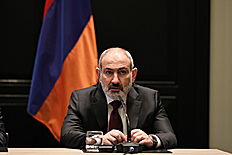 1670x1113px - 338 Kb
1670x1113px - 338 Kb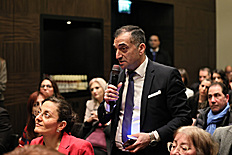 1670x1113px - 444 Kb
1670x1113px - 444 Kb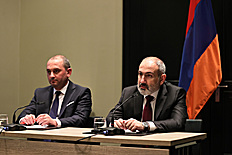 1670x1113px - 423 Kb
1670x1113px - 423 Kb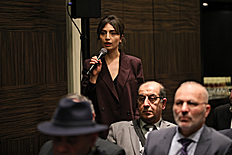 1670x1113px - 448 Kb
1670x1113px - 448 Kb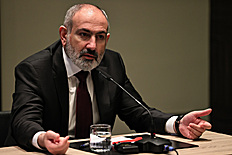 1670x1113px - 402 Kb
1670x1113px - 402 Kb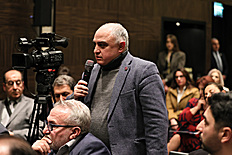 1670x1113px - 626 Kb
1670x1113px - 626 Kb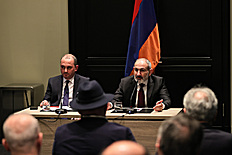 1670x1113px - 397 Kb
1670x1113px - 397 Kb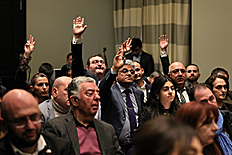 1670x1113px - 534 Kb
1670x1113px - 534 Kb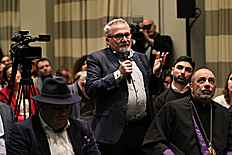 1670x1113px - 513 Kb
1670x1113px - 513 Kb
more 142 photos
Prime Minister Nikol Pashinyan arrived in the Federal Republic of Germany, Berlin, on a working visit with his wife, Anna Hakobyan.
As part of the visit, the Prime Minister will have a meeting with Chancellor of Germany Olaf Scholz today. After the negotiations, the Armenian Prime Minister and the German Chancellor will meet with the media representatives to summarize the results of the meeting.
On March 2, Nikol Pashinyan will visit the German Council on Foreign Relations.
Prime Minister Pashinyan is scheduled to meet with the President of Germany, Frank-Walter Steinmeier, on March 3.
A number of other meetings will also take place within the framework of the visit.
* * *
The meeting between the Prime Minister of the Republic of Armenia Nikol Pashinyan and the Chancellor of the Federal Republic of Germany Olaf Scholz took place in Berlin. First, the leaders of the two countries had a private conversation, after which they presented details of the results of the negotiations and answered the journalists' questions at the meeting with the media representatives.
Chancellor Scholz said in his speech. "Ladies and gentlemen, I am happy to welcome the Prime Minister of the Republic of Armenia Nikol Pashinyan in Berlin today. Today we had a very good intensive exchange of ideas about deepening the relationship. You have followed and seen that Prime Minister Pashinyan has started a process of comprehensive reforms in his country. We want to continue helping Armenia within our capabilities on this path. We took an important step last year, Germany resumed development cooperation with Armenia. At the European level, we are working within the framework of the Eastern Partnership to help on the path of reform here as well.
We also talked about Russia's war of aggression and its considerable impact on Ukraine, as well as Armenia and the South Caucasus.
I realize that Armenia particularly feels this impact. That is why it is more important that Armenia and Azerbaijan go step by step to a long-term solution. The Prime Minister presented me with the latest developments in Nagorno Karabakh, we are concerned about the instability on the border of Armenia and Azerbaijan and the worsening humanitarian situation in Nagorno Karabakh. The status quo cannot continue and a long-term solution should be achieved for the good of the people.
In this regard, it is necessary to reach a peaceful settlement from the point of view of the territorial integrity of Armenia and Azerbaijan, as well as the self-determination of the citizens of Nagorno-Karabakh. Moreover, all these principles are equal.
Germany supports the mediation efforts of the President of the European Council, Charles Michel, and we have done the same by sending our personnel as part of the EU observation mission. Moreover, a German federal police officer will lead that mission.
We exchanged ideas about the quadrilateral meeting held in Prague, we also touched on trade and economic relations. Germany is the most important trade and economic partner in the European Union, in this context I asked the Prime Minister and encourage him to continue his fight against corruption. We touched on other issues as well, I thank the Prime Minister for his visit. I am sure that in the future we will have many other questions and will discuss them."
In turn, Prime Minister Pashinyan noted.
"Dear Mr. Chancellor,
Ladies and gentlemen,
First of all, I would like to thank my colleague Olaf Scholz for his warm welcome and meaningful and productive discussions.
Our delegation and I noted with satisfaction that there is a high level of political dialogue between Armenia and Germany. Our relations are actively developing both bilaterally and multilaterally, as evidenced by recent high-level mutual visits and active contacts.
We discussed issues related to Armenia-Germany trade and economic cooperation. We attached importance to the continuous efforts of both sides in the direction of maintaining the positive dynamics of growth of trade turnover and encouraging mutual investments.
Armenia attaches great importance to the inclusion of Armenia as a bilateral partner within the "BMZ 2030" reform strategy of the German Ministry of Economic Development and Cooperation, which provides an excellent opportunity to ensure the stable continuity of current reforms and programs in Armenia.
We referred to the Armenian-German financial and technical cooperation, in particular, to the activities of the German international cooperation agencies GIZ and KFW in Armenia. We hope that the opening of KfW and GIZ local offices in the near future will be a new impetus for the development of cooperation between the two countries.
Germany and Armenia have a long experience of cooperation in the field of environmental protection, in the conditions of the changing climate, we are interested in developing this cooperation in the fields of water resources management, forest restoration and renewable energy. We are also interested in the development of "green hydrogen".
I should note with satisfaction that effective cooperation between the two countries is developing in the field of science and education. There is effective cooperation between Armenian and German universities and individual scientists, which has great potential for development.
Joint cultural events and contacts between people are also extremely important.
During our meeting, we also touched upon the inter-parliamentary cooperation, noting with satisfaction, in particular, the active contacts and visits of the parliamentarians during the last few years.
Decentralized cooperation also plays an important role in bilateral relations, where we have already established many examples of cooperation.
We both emphasized that there is a great development potential in the relations between Armenia and Germany and we expressed our willingness to consistently cooperate with joint efforts in forming a new, more ambitious agenda.
Armenia-EU partnership was also on the agenda of our meeting. We emphasized the importance of the Comprehensive and Enhanced Partnership Agreement, which opens up new prospects for cooperation with EU member states in bilateral format.
Taking this opportunity, I would like to once again express our gratitude to the German government for supporting the decision to deploy a new EU long-term monitoring mission in Armenia and express my belief that this mission will play a significant role in establishing peace and security in the region. I also personally thanked Chancellor Scholz, because I know that his personal contribution to making that decision was very big.
Dear attendees,
One of the key topics of our discussions was, as the Chancellor said, the security situation in the South Caucasus and the challenges facing Armenia.
After signing the declaration on November 9, 2020, Armenia spared no effort to achieve the normalization of relations with Azerbaijan and ensure the rights and security of the people of Nagorno Karabakh. Unfortunately, instead of participating in negotiations in good faith, the Azerbaijani side continues its unconstructive policy, threatens Armenia's democracy, undermining our government's efforts to establish peace, stability and security in the South Caucasus.
Today, the most urgent issue is that since December 12, 2022 the only road connecting Nagorno-Karabakh with Armenia and the outside world, the Lachin Corridor, has been closed by Azerbaijan, as a result of which 120,000 residents have found themselves in a blockade. These actions of Azerbaijan in 2020 It is a gross violation of the obligations assumed by the tripartite declaration of November 9, which is a part of the large-scale and systematic policy of Azerbaijan aimed at the ethnic cleansing of the people of Nagorno-Karabakh. It is also important to emphasize that we think it could be very important to send an international fact-finding mission to the Lachin Corridor and Nagorno-Karabakh for a more comprehensive introduction to the situation of the international community. These actions of Azerbaijan are a gross violation of the obligations assumed by the trilateral declaration of November 9, 2020, which is a part of the large-scale and systematic policy of Azerbaijan aimed at the ethnic cleansing of the people of Nagorno-Karabakh. It’s also important to underline that we think it could be very important to send an international fact-finding mission to the Lachin Corridor and Nagorno-Karabakh for the international community to get a more comprehensive understanding of the situation.
I have to stress that on February 22 the International Court of Justice made a legally binding decision for Azerbaijan, obliging it to take all necessary measures to ensure the uninterrupted movement of people, vehicles and cargo in both directions through the Lachin Corridor.
We call on our international partners to take active steps to ensure the immediate implementation of the court's decision by Azerbaijan.
We attach importance to the clear position of Germany, a country of democracy, protection of human rights and preservation of universal values, which will support Armenia's efforts towards stability and peace in the South Caucasus.
Dear attendees,
Dear Chancellor Scholz,
Concluding my speech, I thank you once again for the warm welcome and meaningful conversation. We are ready to make efforts to contribute to the expansion of the cooperation agenda between Armenia and Germany."
Question - Public TV of Armenia – My question is addressed to Mr. Chancellor. For 81 days, Azerbaijan keeps the only road connecting Nagorno-Karabakh to the world, the Lachin Corridor, closed, violating the fundamental rights of the people living there and also creating a humanitarian crisis. As Mr. Prime Minister mentioned, on February 22, the Hague Court made a decision obliging Azerbaijan to ensure the free movement of people and goods through the Lachin Corridor. This decision is subject to mandatory implementation from the point of view of international law, but Azerbaijan still keeps the Lachin corridor closed. How do you assess Azerbaijan's disregard for this decision of the UN International Court of Justice?
German Chancellor Olaf Scholz - Thank you for your question, you presented in detail the worrying nature of the situation. We have already talked about it in our discussion. I want to repeat what I clearly said at the beginning. we support the right to self-determination, also the principle of territorial integrity, and in general, we need to improve security in the region. We talked about that issue in detail. I am glad that the President of the European Council, Charles Michel, is participating and mediating. We also have our own efforts and role to play. It's really difficult to lead, it's very important, and I really appreciate the leadership of my colleague, it's really impressive in this difficult situation.
Question - Mr. Federal Chancellor, I want to ask about circumventing sanctions against Russia. Trade decreased with the European Union, but increased with Armenia, and last month we learned from the Minister of Economy that sanctions are circumvented through third countries. maybe Armenia is also among those countries? Do you think it should be addressed?
Mr. Pashinyan, I would like to point out that the research shows that the actions of third countries to circumvent the sanctions have increased. What are you doing to overcome the steps aimed at circumvention?
German Chancellor Olaf Scholz - Thank you for this question. We talked about that too, it's also part of our relationship. We hope that these principles are observed.
Prime Minister Nikol Pashinyan – Thank you for the question. We, in line with our practice, and as a democratic country and as a country for which transparency is very important, we have told all our Western partners and we are telling them that we are ready and transparent in this matter. Yes, the numbers are changing, the numbers are changing all over the world, because the logistics chains, relationships are changing. I want to say that not only the imports from the EU to Armenia have increased, but also the exports from Armenia to the EU countries have increased, and that’s also conditioned by the fact that we are interested in establishing relations with the EU. As for the rumors about circumventing sanctions, I have to emphasize that they are nothing more than mere rumors. The reality is just the opposite. I have to bring an example. Last spring, a western owner took possession of an aircraft used by one of the Russian airlines from Armenia. And this, I think, is the most direct and clear example when we have shown that, respecting all our relations, all our partners, the legality of actions and activities is of fundamental importance to us. And I do not think that a country where such a thing has happened can be blamed for any other shady circumstances. On the other hand, we should follow the events with all attention to help the private sector not to engage in such activities that could spoil Armenia’s relations with any partner.
Question - After the deployment of European Union observers in Armenia, it is stated that a new agreement is needed between Armenia and the European Union, which will also include the security component, since it no longer corresponds to the level of relations that Armenia and the European Union have today. I want to know whether there are such issues on the agenda in this direction or not, and whether we can expect an increase in the number of observers from the European Union in the near future or not.
German Chancellor Olaf Scholz - I am very proud of this whole mission in general, first of all, it is a great investment, we will develop this mission and see.
Prime Minister Nikol Pashinyan - I already said that this topic was one of the topics of our discussion. We are very happy and grateful for the decision. But since you spoke about the agreement, now the presence of the EU observer mission is regulated by mutual official letters, but we also have an agreement that an agreement regulating that presence and mission should be discussed, negotiated and signed. And I think that we will probably sign a document regulating the presence of the monitoring mission in the near future, when we negotiate and reach a general agreement on the wording of the already reached agreements.
Question - Mr. Prime Minister, your country abstained from voting on the Ukraine resolution last week. Why are you unwilling to fully condemn Russia's war of aggression?
Mr. Chancellor, you are going to the United States, you can also talk and meet with Biden. Mr. Mertz accuses you of covert activities and are you planning to discuss military industry issues in the United States as well?
Prime Minister Nikol Pashinyan - Our country is doing everything to position itself on international platforms as a responsible member of the international community. I think we are taking and have taken very visible steps in this direction, and our principled position will continue to be maintained.
German Chancellor Olaf Scholz - Thank you for the question. This is the result of the quality of our transatlantic cooperation. We are talking about the relationship between the Chancellor of Germany and the President of the United States. We often talk to each other, exchange ideas, also by phone, video conferences. We also want to speak directly together as it is normal. We do the same with European countries and I am glad that this joint periodic work corresponds to the quality of our relations. Many things have become complicated. As the President of the Federal Republic of Germany said, it seems the world has gone off course. It is very important that closely cooperating friends and colleagues talk to each other all the time. There is nothing special, but it’s necessary to speak directly and I am happy.
* * *
As part of his working visit to the Federal Republic of Germany, Prime Minister Nikol Pashinyan visited the office of the German Konrad Adenauer Foundation, where he was welcomed by Norbert Lammert, the Foundation's Chairman.
At the meeting with the representatives of the Foundation, the Prime Minister touched on the developments taking place in the South Caucasus, the democratic reforms being implemented in Armenia, the works being carried out in the framework of the fight against corruption and other topics.
In Berlin, the Prime Minister laid flowers at the khachkar (cross-stone) to the memory the victims of the Armenian Genocide.
* * *
Prime Minister Nikol Pashinyan visited the German Council on Foreign Relations in Berlin, where he had a meeting with representatives of political, social and expert circles, participated in the discussion "Security and Stability in the South Caucasus. Armenia's Perspective".
The Prime Minister first delivered a speech, where he particularly said,
“Ladies and Gentlemen,
I am pleased to have this opportunity to be here today and address this distinguished audience. First of all, I would like to express my gratitude and appreciation to Mr. Ralf Nickel, vice President of the Council, and Director Mr. Guntram Wolff and his team for organizing this event.
Today we are living at a time when not only natural but also geopolitical tectonic shifts are taking place all around the world. Deepening geopolitical instability, growing tensions and unpredictability are weakening the world order and international security system, creating even bigger challenges, especially for a country like Armenia, with democracy in a complex region, making us more vulnerable in our complicated region.
Dear attendees,
We witnessed the first sprouts of today’s challenges and the collapse of the European security architecture in our region back in 2020 when Azerbaijan unleashed a war against Nagorno-Karabakh.
After the signing of the November 9, 2020 trilateral statement, Azerbaijan not only didn’t abandon its bellicose policies and threats, but also carried out new aggression, this time against the sovereign territories of the Republic of Armenia in May 2021, November 2021 and September 2022.
During the last aggression - on September 13-14, 2022, Azerbaijan launched a large-scale military attack targeting the military and civilian infrastructure of Armenia using heavy artillery, missile systems, and drones. As a result, the Armenian side had 225 victims, including 3 civilians. More than 150 square kilometers of the sovereign territories of Armenia were occupied.
Today, I wouldn’t like to go deep into the details of the aggressions of 2020, 2021, 2022, but it is impossible to ignore the evidences of multiple cases of torture, mutilation of captured or already dead Armenian servicemen (including servicewomen) and other atrocities by Azerbaijani military forces. The horrible videos of the Azeri militaries committing “ISIS-style” war crimes by executing Armenian prisoners of war (POWs) should be acknowledged and addressed by the international community. Another issue is the engagement of the mercenaries from Syria by Azerbaijan.
During the aggression of September 2022, when the external security system of Armenia didn’t work, we requested an emergency meeting of the UN Security Council that was held on September 15, 2022. During the meeting, the UN Security Council member states noted that the use of force is totally unacceptable, explicitly named the aggressor - Azerbaijan, highlighted the importance of adherence to the norms of international humanitarian law, emphasizing also the fact that civilian infrastructure on the territory of Armenia was targeted.
An important step towards de-escalation of the situation was a quadrilateral meeting of President Macron, President Michel, President Aliyev and me, in Prague on October 6, 2022, where an agreement was reached on deploying short-term EU monitoring capacity along the international border between Armenia and Azerbaijan.
When this mission’s mandate ended on December 19, 2022, at Armenia's request the EU Council made a decision to deploy a new, fully-fledged civilian mission (EUMA) on the territory of the Republic of Armenia for a two-year period.
On behalf of the Government of Armenia, I would like to express our gratitude to the EU and its member states, particularly to the Government of the Federal Republic of Germany for its support to our request. The Mission was launched on 20th February, and I have already met the Head of the Mission, your compatriot with extensive experience in international deployments – Mr. Markus Ritter in Yerevan.
The Mission shall play a crucial role in ensuring security on the ground and stability in the region, as well as timely and reliable reporting on the current situation to our partners in the EU and its member states.
Dear colleagues,
Azerbaijan, in gross violation of the provisions of the trilateral statement of November 9, 2020, has being illegally blocked the Lachin corridor connecting Nagorno-Karabakh to Armenia since December 12, 2022.
The blockade resulted in a humanitarian crisis. 120,000 Armenians of Nagorno-Karabakh had been cut off from natural gas, electricity, food, medical and other vital supplies.
Due to a severe shortage of food and other necessary goods authorities of Nagorno Karabakh had to take desperate measures, issued food coupons and are rationing certain foodstuffs. Population receives only erratic power supplies, from local electricity capacities. Universities, schools and kindergartens were shut down, due to which more than 30 thousand students and children were deprived of their right to education.
On December 20, 2022, upon the request of the Republic of Armenia, an emergency meeting of the UN Security Council was held on the situation caused by the blockade of the Lachin corridor.
The overwhelming majority of the UN Security Council members made clear demands to stop the blockade of the corridor by Azerbaijan and to ensure the access of international organizations to Nagorno-Karabakh. Dozens of countries and organizations issued a targeted condemnation of the blockade of the Lachin Corridor and urged Azerbaijan to end it. The Republic of Armenia has been putting efforts to send a UN, and OSCE fact-finding mission to Nagorno-Karabakh and Lachin Corridor.
Also, the Republic of Armenia filed a request to the International Court of Justice of the United Nations under Convention on the Elimination of All Forms of Racial Discrimination (CERD) to apply provisional measures to unblock the Lachin Corridor. On 22 of February, early this year, the International Court of Justice issued its orders to Azerbaijan to take all measures at its disposal to ensure the unimpeded movement of persons, vehicles and cargo along the Lachin Corridor in both directions.
Unfortunately, up to now Azerbaijan failed to comply with the decision of the ICJ and the traffic through the Lachin corridor is still disrupted. Though the natural gas supply is restored, electricity supply to Nagorno-Karabakh, having been cut off since 9 January 2023, has not been restored yet. Food supplies are still carried out by coupons and people are deprived of critical medical care. Only Red cross and Russian peacekeepers are able to deliver limited amount of food and necessary lifesaving goods to Nagorno Karabakh, and transport people with healthcare emergency needs to Armenian hospitals.
Growing aggressiveness of Azerbaijan toward Nagorno-Karabakh makes clear the intensions of Azerbaijan – to carry out an ethnic cleansing of Armenians. Recently president Aliyev of Azerbaijan declared that Lachin corridor is open for those Armenians who want to leave Karabakh. That means – that Lachin corridor is closed for those Armenians who live in Nagorno Karabakh.
Dear participants,
Despite the above-mentioned, the Government of Armenia has shown the political will and has been taking decisive steps to open a new era of peace and stability in the South Caucasus and has been engaged constructively in the Armenia-Azerbaijan negotiations.
The Armenia-Azerbaijan negotiation process is going on in the following three main tracks: Agreement on the normalization of relations between Armenia and Azerbaijan, unblocking of transport communications and economic links in the region and border demarcation and security.
Armenia agreed to separate from the Armenia-Azerbaijan process the settlement of the Nagorno-Karabakh issue, with the logic that a mechanism of discussions between Stepanakert and Baku will be formed. It is essential for Armenia to establish a guarantee mechanism addressing the issues of security and rights of the Armenians of Nagorno-Karabakh which will have international visibility and involvement.
Without going into the details, I would like to mention that the key humanitarian issues, such as the return of all the Armenian prisoners of war (POWs), and the access of International organizations to Nagorno-Karabakh, continue to remain unresolved and are the issues of our utmost concern. We strongly condemn the continuous violations of the Geneva Convention on POWs by Azerbaijan as at least 33 Armenian POWs have been sentenced to different terms of imprisonment through completely trumped-up charges. The refusal of Azerbaijan to repatriate Armenian prisoners of war is another violation by Azerbaijan of point 8 of trilateral statement of 9th November of 2020.
Ladies and Gentlemen,
Another aspect of our vision of regional peace is the normalization of relations with Türkiye. We are ready to fully normalize relations with Türkiye, establish diplomatic relations. We hope for full opening of our common border, which was unilaterally closed in the early 90ies by Türkiye.
We have some small but hopeful signs that we are moving forward. Special Representatives of our countries agreed upon establishing air cargo transportation and opening interstate borders for third-country citizens in July 2022.
In January a ban on direct air cargo transportation between Türkiye and Armenia has been lifted, and we hope for the speedy implementation of the opening of the border for third-country citizens.
Also, I met President Erdogan in Prague on the margins of the European Political Community summit in Prague 2022, where we discussed the prospects of normalization.
Armenia reacted rapidly after the recent devastating earthquake in Türkiye. I called up President Erdogan with condolences and proposed our support. After that we sent humanitarian aid and rescue team to the affected areas. It is very important to state that two convoys of humanitarian aid entered into Türkiye through the border bridge which had been closed for 30 years. Our rescue team returned to Armenia through that bridge as well.
Armenian Foreign Minister visited Türkiye, met his counterpart and reiterated our readiness and willingness to fully normalize relations. Though the last interactions were, of course, of purely humanitarian essence, we, however, would be glad to have the political outcomes.
Dear friends,
I would like to stress that the EU is one of our key partners on our democratic reforms path. In this context, it is worth to mention that Germany is a major political and economic partner for Armenia providing development aid and support for our domestic reforms.
Continuing the topic of cooperation with the EU, I would like to inform you of a new important format of the Armenia-EU partnership agenda – The Political and Security dialogue, the inaugural meeting of which took place in Yerevan last January. The discussion on a wide range of issues, including the overall regional situation and the prospects of deepening our collaboration in certain areas was not only timely but also considerably enriched our diverse partnership agenda with the EU.
In this context I would like to stress that the basis for our cooperation with EU is democracy. And according to the latest "Index of the General Assessment of Eastern Partnership Member States", Armenia topped the "Democracy and Good Governance" rating table among the EaP member countries and is a leader in the following 5 areas: fight against corruption, an independent judiciary, opinion and freedom of expression, freedom of assembly and association, independent media and democratic rights, elections and political pluralism.
Despite all the challenges, we do believe that our security architecture cannot be comprehensive without respect for human rights, rule of law and democracy. Democracy is a strategy for us. We will keep up reforms aimed at strengthening rule of law, consolidating good governance and fighting against corruption, aiming to ensure prosperity for our people.
The 2018 democratic revolution, followed by 2018 and 2021 snap parliamentary elections proved that Armenia’s democratic development path is irreversible. In this regard, 2021 parliamentary elections were exceptional: it was first case when election in Armenia served as a tool for overcoming the political crisis. I mean internal political crisis that we had after the 44 days’ war of 2020. Usually elections sparked political crisis in our country and it was the case from 1994 to 2018.
But this page is closed after the democratic revolution of 2018, and Armenia now is an internationally recognized democratic country. However, recent security challenges raise serious question the following question - whether democracy can provide security.
Whether Armenian democracy is able to provide security - this is the question that rightfully worries the Armenian society today and an issue to be addressed by our government.
Thank you for attention.”
Then the Prime Minister answered the questions of the audience. Referring to the issue of unblocking regional infrastructures, Nikol Pashinyan said: "You know, it is very important to note that sometimes the same words can have different meanings in different regions. Thus, usually when we say corridor in Europe, we mean communication, transportation, etc. But in our case the reality is different. Why? This is due to the the trilateral declaration of November 9, 2020, because in that trilateral declaration we have only one mentioning of the corridor, and that is the Lachin Corridor, which, according to the trilateral declaration, should be and is beyond the control of Azerbaijan.
And this is with the consent of Azerbaijan, and the president of Azerbaijan signed the trilateral declaration. In the same statement, we have a point about communication, which is about regional communication, transport routes, etc. And there is no other point about the corridor through the territory of Armenia. There is a very important circumstance: when the president of Azerbaijan publicly said that the so-called point about the corridor you mentioned (Zangezur corridor-edited) does not exist, and Azerbaijan itself invented this term after signing the trilateral declaration. According to the statement, and it is with the consent of the president of Azerbaijan, the Lachin corridor is beyond the control of Azerbaijan.
On the other hand, we have accepted that bilaterally, not only Armenia, but also Azerbaijan, we should open all economic and communication routes. And there is no point according to which these routes should be outside the control of Armenia. We have repeatedly stated that this is a red line for us. On the other hand, we have announced, and there is no exaggeration here, that Armenia is ready to open all communications even tomorrow, even tonight. By the way, we had a trilateral meeting in Brussels December 14, 2021, where we reached a concrete agreement to repair the railway, which passes through the south of Armenia, can reach Turkey, Iran, Russia through Azerbaijan. We had reached an agreement, it had been published. There was a very important nuance there. According to this agreement, the railway should operate under the laws of the countries through which it passes.
Unfortunately, a week after that, Azerbaijan refused to sign what was already agreed upon in the presence of the President of the European Council, Charles Michel. So what’s the nuance in? Saying "Zangezur Corridor" means supporting Azerbaijan's territorial ambitions towards Armenia. And I want to ask you to take into account that the same word can have different meanings in different regions, in different political circumstances. This is my answer."
Referring to the issue of democracy in Armenia, the Prime Minister said. "I want to emphasize that there is no internal threat to democracy in Armenia. I think that the 2021 elections proved it. But, on the other hand, we have external threats to our democracy. Azerbaijan's continuous escalations, aggressive rhetoric, and hate speech are a great threat to Armenian democracy. By the way, I want to mention a very important fact. After the war in 2020, Azerbaijan invaded the sovereign territory of Armenia for the first time on May 12, 2021. And this happened just two days after I resigned from the post of Prime Minister, and snap elections were coming up. It is a constitutional process. if a new prime minister is not elected after the resignation of the prime minister, it means that snap parliamentary elections must take place. And when we announced that we were going to hold extraordinary parliamentary elections, two days later Azerbaijan invaded Armenian territories.
It was an attempt to influence the results of the elections, to destroy all the democratic achievements of the Republic of Armenia, to create the opposite situation, to prevent the elections from taking place, to decrease the legitimacy of the Armenian government. But even under these circumstances, we remained committed to democracy. And we managed to hold free and democratic elections, and this is not our assessment, this is the assessment of the international community and international observers."
Referring to the question about the situation in the region, Prime Minister Pashinyan said. "You know, the situation in our region is becoming more and more complicated, because due to the events and developments in Ukraine, all international attention is focused on Ukraine. For this reason, during the crisis in Ukraine, a very dangerous crisis is unfolding in our country, which concerns Nagorno Karabakh and the territorial integrity of Armenia. First, in May, 2021 Azerbaijan invaded the territory of Nagorno Karabakh, in the zone of responsibility of Russian peacekeepers, and after that we had a big crisis in September, 2022, when Azerbaijan started a large-scale military aggression against Armenia. There are many factors for these developments, but the most important factor is that all the attention of the international community was or is focused on Ukraine. And it creates even greater opportunities for instability in our region."
Speaking about the Russians who arrived in Armenia, the Prime Minister noted that many people, particularly from the IT sector, relocated to Armenia. "I think it happened because of certain technical issues, because usually they are paid by Western organizations, and after the sanctions, they probably couldn't get a salary and decided to move to Armenia. Maybe they loved our country. And, frankly, we are happy for their presence, because it creates additional economic activity in our country. By the way, we recorded 12.5% economic growth in 2022. Not completely, but partly, this is due to the activity of Russian emigrants. I would also like to say something that is not directly related to the issue, but is related to our regional situation, because representatives of Azerbaijan often say that Armenia is a mono-ethnic country, and they present it as a very negative fact. I want to note that we have mandates for national minorities in our parliament, and this is mandatory. According to our Constitution, national minorities have a mandate in our parliament. And now we have Russian, Assyrian, Kurdish, Yezidi representatives. By the way, Yezidis are the largest national minority in our country, and now we have, I think, four guaranteed, mandatory mandates for national minorities, and if I'm not mistaken, there are no mandates for national minorities in the Azerbaijani parliament.
Referring to relations with Turkey, Nikol Pashinyan said that Armenia never had any preconditions for establishing relations with Turkey. "And now I can say the same: we don't have any preconditions. We just think that we are neighbors and should have relations. And to be honest, I'm not even sure if it's right to talk about it now or not, but I think that now the main obstacle to establishing relations between Armenia and Turkey is Azerbaijan's position, because Azerbaijan constantly urges Turkey not to establish relations with Armenia. Maybe I shouldn't have said this, but I want you to know the very important nuances of the process. We are ready even today, without any exaggeration, to open the border. By the way, we did not close the border, it was closed by Turkey. But now we have taken a very important step. As I said, our humanitarian aid reached Turkey through the border. Of course, our reaction and position was entirely based on a humanitarian approach. But if the decision to send humanitarian aid to Turkey also has certain political consequences, we will be happy about it," Nikol Pashinyan emphasized.
Referring to the question of the representative of Azerbaijan regarding the Lachin Corridor, the Prime Minister noted. "Let me first address the question of the representative of the Azerbaijani consul. Let me note that the International Court of Justice recently, on February 20, rejected Azerbaijan's claim against Armenia in a parallel lawsuit regarding alleged mining by Armenia. The International Court of Justice rejected Azerbaijan's claims that Armenia or Nagorno-Karabakh use the Lachin Corridor for military purposes. So, I think I don't need to respond, because the International Court of Justice has already responded. As for the issue of mutual recognition of territorial integrity, it has already been agreed upon. According to the results of the quadrilateral meeting in Prague, there is a point according to which Azerbaijan and Armenia recognize each other's territorial integrity and agreed that the delimitation process should be based on the Alma-Ata Declaration of 1991, which is about the establishment of the Commonwealth of Independent States. And that declaration says that administrative divisions between former Soviet republics become state borders. And according to the Prague agreement, the delimitation process should be based on this principle. But if I'm not mistaken, 10 days after that, president Aliyev of Azerbaijan announced that the delimitation process between Armenia and Azerbaijan should be based on historical maps. What does it mean historical maps, when we have already reached an agreement? We have already agreed that we recognize each other's territorial integrity based on that declaration. Moreover, recently the president of Azerbaijan introduced a new initiative called "Western Azerbaijan". Do you know what that means? It means that Armenia does not have a sovereign territory, the entire territory of the Republic of Armenia is the so-called "Western Azerbaijan", saying in parallel that we want peace, etc., etc. This is a very weird situation. This is the main problem of our relationship. We reached an agreement with the trilateral declaration of November 9, 2020, we signed it. The President of Azerbaijan, the President of Russia and I signed that document. We have reached an agreement. It was a very difficult decision for me, for Armenia. There is a point, according to which all prisoners of war and detained persons should be repatriated, but so far we have 33 prisoners of war, we have a civilian who is a prisoner. He was a representative of a charity organization, who was caught by the Azerbaijanis in the Lachin Corridor, and he was sentenced to 25 years in prison. Do you know for what? Three days before that, he went live on Facebook and said something that the president of Azerbaijan did not like. And now, according to the decision of the Azerbaijani court, he is a "spy, terrorist, murderer".
Answering the question of another Azerbaijani representative, Nikol Pashinyan noted that in 2018, when he became the Prime Minister of Armenia, he addressed social media users in Armenia and Azerbaijan during one of the press conferences, asking them not to use that platform for hate speech, aggressive, offensive rhetoric, but try to talk to each other and understand each other's position. "But, unfortunately, my initiative failed. But I completely agree with you. We must focus on a positive future, on the future of our common region. Because it is a fact that the three states of the South Caucasus - Armenia, Georgia and Azerbaijan - have very strong cultural similarities. That is a fact. And we should focus on the positive aspects. And you are right, we are interested, maybe Armenia is even more interested in the opening of regional communications, and that is the reason why Azerbaijan is trying, so to speak, to sell it at the highest possible price. We should focus on positive opportunities for peace and cooperation. The peace agenda is my responsibility, and I would like to receive some support from the Azerbaijani public as well. At the end of our meeting, I will try to focus on positive aspects. My expectation from the international community is to make it clear that any provocation will receive a very harsh response from the international community, and it is very important to maintain stability. I emphasize that it does not matter from the side of Armenia or Azerbaijan, because now we have observers in the region, and now there will be no need for the EU to ask which side was the initiator. Now you have your own source of information. In general, I would like to say that our political team, the parliamentary majority has taken responsibility for the peace agenda, and now we have a mandate for the peace agenda. We are focused on the implementation of that mandate. And we need the support of the international community, the nations of our region, and we are ready to bear that responsibility until we reach a final and lasting peace. And recently I announced in our parliament and government that I have full determination to sign a peace treaty with Azerbaijan, but it should not be a document reminding a capitulation for Armenia. It should be a real and lasting peace document for our region, and I am ready to bear that responsibility for the sake of peace, stability, regional and international cooperation. This is my final conclusion of our discussion today. Thank you," Prime Minister Pashinyan concluded.
* * *
Prime Minister Nikol Pashinyan had a working breakfast with the members of the Germany-South Caucasus friendship group of the Bundestag, headed by the group's chairman Johann David Wadephul.
The Prime Minister emphasized the continuous development of cooperation between Armenian and German parliamentarians, including on international platforms. Nikol Pashinyan noted that cooperation with Germany in various directions, including political and economic cooperation, is of key importance for the Armenian Government.
Johann David Wadephul informed that in the near future they plan to visit the region and emphasized the importance of strengthening inter-parliamentary relations with Armenia.
Both bilateral relations and developments in the South Caucasus, as well as the humanitarian crisis in Nagorno-Karabakh resulted by Azerbaijan's illegal blockade of the Lachin Corridor, were discussed at the meeting. Continuous and consistent attention and reaction of the international community was emphasized for overcoming the crisis in Nagorno Karabakh. The necessity of Azerbaijan's immediate implementation of the decision of the UN International Court of Justice was emphasized.
* * *
Prime Minister Nikol Pashinyan and Mrs. Anna Hakobyan visited the residence of the President of the Federal Republic of Germany, where they met with the President of Germany Frank-Walter Steinmeier and his wife Elke Büdenbender. After the welcoming ceremony, Prime Minister Pashinyan and Mrs. Hakobyan made a note in the book of honored guests, then the Prime Minister had a private conversation with the President of Germany, and Mrs. Hakobyan with Elke Büdenbender.
The meeting between the Armenian Prime Minister and the German President continued in an extended format.
Nikol Pashinyan and Frank-Walter Steinmeier discussed a number of issues related to Armenian-German cooperation. Reference was made to the development of cooperation in the political and economic spheres. In that context, the active cooperation of the governments of the two countries was highlighted.
The President of Germany expressed readiness to contribute to the strengthening of bilateral ties and emphasized the importance of democratic reforms in Armenia.
Nikol Pashinyan presented details about the process of institutional reforms and noted that democracy is of strategic importance for the Armenian Government.
The interlocutors touched upon the processes taking place in the South Caucasus region, the humanitarian crisis in Nagorno-Karabakh resulted by Azerbaijan's illegal blockade of the Lachin Corridor, and other issues of mutual interest.
Mrs. Anna Hakobyan and Elke Büdenbender highlighted the vigorous activities of the ladies of the heads of state in different directions.
The lady of the German President emphasized the development of the field of dual education and the programs implemented in that direction, presenting details about the steps carried out in Germany.
The Prime Minister's wife noted that the "My step" foundation also implements programs in the field of dual education.
The important role of women in establishing and strengthening peace was emphasized. In this context, Mrs. Hakobyan invited Elke Büdenbender to the international summit on "The Role of Women in Promoting Democracy, Peace and Security" to be held in Yerevan this year.
* * *
Prime Minister Nikol Pashinyan's working visit to the Federal Republic of Germany continues. Today, the Prime Minister was hosted in the Bundestag and had a meeting with the members of the Foreign Affairs Committee headed by Chairman Michael Roth. The latter welcomed the Prime Minister and noted that the visit is a good opportunity to discuss both the Armenian-German inter-parliamentary cooperation and the processes taking place in the South Caucasus region.
Prime Minister Pashinyan made a speech, in which he specifically stated:
"Mr. Chairman,
Dear Colleagues,
I am very happy to be here and to see you, because I think there are many issues that we would like to discuss today. I hope today we will have an open and constructive discussion.
You emphasized that there is a new factor in our relations with the EU, and that factor is the monitoring mission of the EU along the Armenia-Azerbaijan border. First of all, I would like to thank the EU for taking this decision. That decision was the outcome of the quadrilateral meeting in Prague when the short-term mission arrived. After that, we applied for a long-term mission and we are grateful to the EU for making that decision.
In general, the situation remains tense, first of all due to the continuous blocking of the Lachin Corridor by Azerbaijan. Unfortunately, despite the decision of the International Court of Justice, Azerbaijan has not opened the Lachin Corridor yet. I would like to draw your attention to the fact that the decision of the ICJ has a legally binding force. I think this is a situation that should be discussed at the international level, because it is unacceptable to leave the decision of the International Court of Justice without a reaction, in particular, when the humanitarian crisis in Nagorno Karabakh continues, and an international reaction is needed.
By the way, what is very important in this context? it has been more than 80 days that the Lachin Corridor has been closed, and during this time Azerbaijan insisted that the Lachin Corridor is not closed, it is open. The decision of the International Court of Justice is very important in terms of clarifying this issue, because the court stated that the Lachine Corridor is closed and should be opened.
During my visit, I heard some opinions that support the idea of sending an international monitoring or fact-finding mission to Nagorno-Karabakh and the Lachine Corridor to observe the humanitarian situation and see what is happening there, because it is a crisis that could have irreversible consequences, it can grow into a humanitarian disaster. I think we should work together to prevent the situation from getting out of control.
But the most important question is why Azerbaijan is doing this. We are sure that Azerbaijan's goal is to carry out ethnic cleansing in Nagorno-Karabakh and cleans Armenians from Nagorno-Karabakh. I think the latest statement of Azerbaijani president Aliyev proves this, because Aliyev said that the Lachin Corridor is open for Armenians who want to leave Karabakh, which I think automatically means that the Lachin Corridor is closed for Armenians who live in Nagorno Karabakh and who want to live there. This is the core cause of Azerbaijan's actions.
There are concerns that this is just the beginning of escalation in Nagorno-Karabakh, perhaps along the Armenia-Azerbaijani border as well, because Azerbaijan continues to express aggressive thoughts, aggressive rhetoric. You know that last September, Azerbaijan initiated a large-scale aggression against Armenia, occupying the sovereign territories of Armenia. But, on the other hand, we reached an agreement in Prague, according to which Armenia and Azerbaijan recognize each other's territorial integrity and sovereignty, based on the Alma Ata Declaration of 1991, which means that the administrative borders of the Soviet states turn into state borders. Alma Ata's declaration was about the collapse of the Soviet Union and the creation of the Commonwealth of Independent States. 13 former Soviet states agreed that administrative borders become state borders.
By the way, we also reached an agreement in Prague that the border delimitation process between Armenia and Azerbaijan will be based on the same declaration of Alma Ata. The surprise was that after that the president of Azerbaijan announced that the delimitation should be based on historical maps. You know, it's very difficult to explain what that means. Maybe the new initiative of the president of Azerbaijan can clarify this situation, because recently we witnessed the presentation of the so-called "Western Azerbaijan" initiative, and the whole idea of this initiative is that the entire territory of the Republic of Armenia belongs to Azerbaijan, and the capital of Armenia is an Azerbaijani city.
Our assessment is that all this, the blocking of the Lachin Corridor, the so-called "Western Azerbaijan" initiative, is a preparation for a large-scale aggression against Armenia.
By the way, I would like to draw your attention to another very important situation. We had a discussion at the German Council on Foreign Relations yesterday, and some of our colleagues there used the so-called "Zangezur Corridor" term. I asked our colleagues to be careful because sometimes the same word can have different meanings in different regions and in different political and geopolitical circumstances. Usually in Europe, saying corridor, people mean routes that provide transport services with better quality, etc. But our situation is that we have a legally agreed point on the word corridor in our trilateral declaration of November 9, 2020, which put an end to the war in Nagorno-Karabakh.
So we only have one point about corridor there and that is the Lachin corridor which is currently blocked. The Lachin Corridor was established for providing connection between Armenia and Nagorno-Karabakh. Lachin Corridor is not just a road, it is a security zone with a width of 5 km, and according to the relevant point of the statement, Lachin Corridor should be outside the control of Azerbaijan and should be under the control of Russian peacekeepers.
In the same declaration, we have point 9, which is about the opening of all transport and economic routes in our region. And yes, there is a point that Armenia should provide a connection between the western regions of Azerbaijan and the Autonomous Republic of Nakhichevan, but there is no point that those routes should be outside of Armenia's control. That route should operate in the context of the opening of roads and railways in our region. I must mention that Armenia is ready to open all communications even today. But every time we try to do this, Azerbaijan says that these routes should not be under the control and legislation of Armenia, which is totally unacceptable to us. Recently, the president of Azerbaijan publicly admitted that there is no point in the trilateral declaration about the so-called "Zangezur Corridor", and it was he who incorporated such that term into the context of regional communications.
The problem is how one can unilaterally incorporate something into the trilateral declaration? This is a total absurd. Thus, I would like that phrase not to be used, because it would mean support for Azerbaijan's territorial ambitions against Armenia. But, on the other hand, I once again confirm that we are ready to open. Moreover, for more than six months now, we have a draft government decision on opening three checkpoints on the Armenia-Azerbaijan border, but every time we try to adopt this decision, the Azerbaijani side makes a lot of noise, saying why they want to open a checkpoint near our borders without adjusting with us.
This is the overall situation, but I think we should focus on the peace agenda. As you know, our government has taken responsibility for the peace agenda, I am personally committed to the peace agenda and democracy, because I believe that democracy and peace go together, and because democracy is a strategy for us, we are interested in peace so that we can ensure the continuous development of democracy, economy and freedom. This was the general assessment of the situation. I will gladly answer your questions."
Next, Prime Minister Pashinyan answered a number of questions of the members of the Bundestag.
* * *
Prime Minister Nikol Pashinyan, as part of his working visit to the Federal Republic of Germany, had a meeting with representatives of the German Eastern Business Association and leading German companies. The meeting took place at SAP Data Space Berlin, a well-known company in the field of business management and information technologies, also operating in Armenia. Representatives of German state bodies, as well as private organizations engaged in agribusiness, digital technologies, pharmaceuticals, energy, aviation and other sectors took part in the discussion.
Welcoming the attendees, the Armenian Prime Minister emphasized the importance of the meeting in this format from the point of view of developing and deepening the Armenian-German trade and economic cooperation. Nikol Pashinyan referred to the economic situation of Armenia, talking about the current trends and indicators. The Prime Minister noted that 12.5% economic growth was recorded in 2022, since 2018 156,000 new jobs have been created, state revenues have increased by $1.8 billion. In the international index of economic freedom, Armenia ranks 11th, after the Velvet Revolution, the monopoly was abolished in Armenia, now reforms are being implemented in the economic sphere, in particular, in the areas of modernization of agriculture, introduction of modern technologies, improvement of infrastructure, energy, high technologies and a number of other directions. Armenia's economic growth rate last year was one of the best in the Eurasian region, and at least 7% economic growth is predicted for this year, although the existing potential creates opportunities for higher growth. According to the Prime Minister, Armenia’s rating by international authoritative rating agencies has moved from stable to positive, which also indicates the improvement of the economic environment.
Nikol Pashinyan presented Armenian government's measures towards improving tax and customs administration and business environment. The Prime Minister noted that the Armenian government is interested in expanding the involvement of German and European companies in Armenia, adding that large-scale projects in road construction, infrastructure improvement and a number of other directions are being implemented in the country with great potential and opportunities for cooperation.
Next, the Prime Minister answered the questions of the representatives of the companies regarding the implementation of investment programs in energy, agriculture, industry, finance, infrastructure and other sectors.
* * *
Prime Minister Nikol Pashinyan ended his working visit to the Federal Republic of Germany with a meeting with representatives of the local Armenian community.
At the beginning of his speech, the Prime Minister, summing up the visit to Germany, noted that he considers it productive. "We had an open conversation with the Chancellor and President of the Federal Republic of Germany. The main purpose of the visit was to try to better understand the view and perception of our German partners towards the Republic of Armenia, to try to make our positions on a number of issues more understandable and comprehensible.
In general, I can say that I will return with very warm impressions. The meetings took place in a friendly atmosphere, including the meeting held in the Bundestag, the meeting with the German-South Caucasus Friendship Group of the Bundestag. Also, a little while ago we held a warm meeting with the representatives of the business community, and yesterday there was a good public meeting at the German Council on Foreign Relations.
In general, I don't want to draw premature conclusions, but one thing is clear that when we look at the events that happened after the blockade of Lachin Corridor, the resolutions of the European Council, as well as the statements of our partners in the international community, there is a certain change in perception of our views, our positions, our problems. Also, the perception of our country in the European Union has changed significantly.
I cannot say that we have guaranteed the security of our country today, especially in these conditions, when geopolitical earthquakes and solutions are taking place. Under these conditions, we are in a very dangerous environment.
But on the other hand, we also have an idea of what needs to be done in terms of managing this security environment. The peace agenda is very important for us. We understand that it is not an easy task for us. We understand that there are many risks, we understand that peace does not depend only on us, on our desire. Others must also want it, others also want it, but the peace wanted by others does not coincide with the peace wanted by us, and the whole purpose and meaning of the diplomatic process should be for this to happen.
In general, I must say that we are in a very difficult and dangerous period. We need maximum seriousness and flexibility in order to overcome the existing challenges.
We do not have deep economic problems, we do not have problems in terms of internal security and democracy. The people have and will continue to have the right and opportunity to make decisions by their choice and vote. Our problems are external, our problems are related to the external environment and security, and it is these concerns that we first of all share on international platforms.
In this sense, we do not have good news, but in a bad environment, the good news is that some international attention is focused on Armenia and the region, and we should be able to use that attention to achieve lasting solutions and peace in the region," the Prime Minister said.
During the meeting, the Prime Minister answered a number of questions of the attendees, which were related to the humanitarian crisis in Nagorno-Karabakh resulted by Azerbaijan's illegal blockade of the Lachin Corridor, the processes taking place in the region, and other topics.
Prime Minister Pashinyan's two-day working visit to Germany is completed.